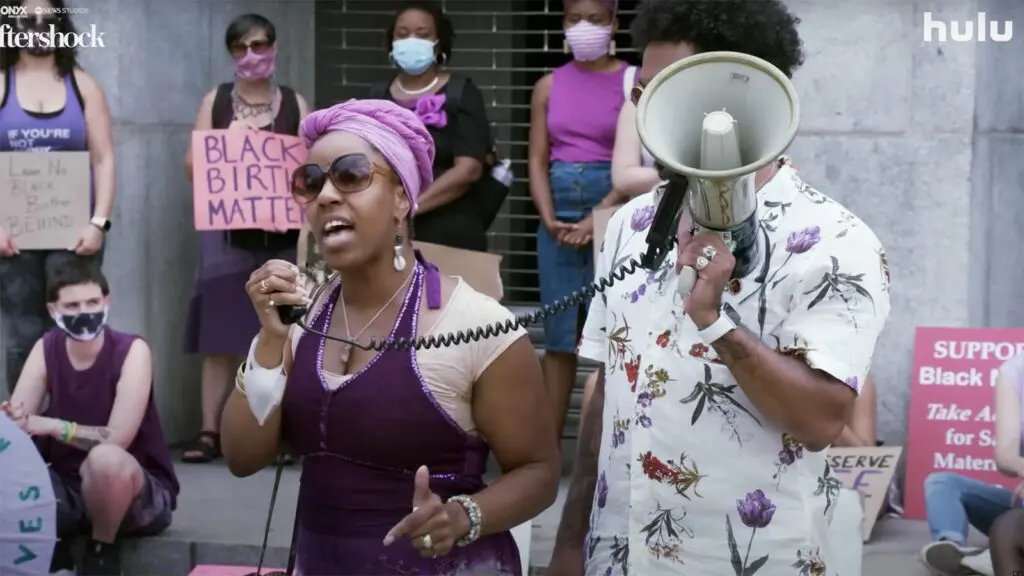Summary
Aftershock leaves an eye-opening and heartbreaking mark.
Aftershock is described best by a doctor about 30 minutes into the documentary film. A more than a noticeable disproportionate spike in deaths from decades prior has been linked to cesarean sections. This is so common that people tend to dismiss it from significant surgery. However, it is, and you are three times more likely to develop serious life-threatening complications. However, that’s if you are white. The odds go up markedly if you are a black woman. As he described it, the issue lies in well-intentioned people “unknowingly” (his words, not mine) being racist when listening to the concerns of minority patients.
Shocking, isn’t it? Yet, the medical field has even developed algorithms on ethnicity’s odds of surviving a vaginal birth. That’s the Vaginal Birth After Cesarean (VBAC) calculator. The VBAC Risk Score helps medical professionals determine the likelihood of vaginal delivery versus induced cesarean births. The numbers are shocking. A white woman has an 82% chance compared to a black woman at 70%. Does this number have nothing to do with race or ethnicity? This calculation pushes a woman of color to take a high-risk surgery with a higher chance of mortality.
This brings up the point of Paula Eiselt and Tonya Lewis Lee’s powerful and terrifying documentary. This is not because people of color are more prone to die of complications during childbirth. The film begins with two men who lost their significant others and are now raising their children as single fathers. This is a perfect example of unconscious bias in the medical profession that white men and women dominate. It also points to the more negligent and sinister problem — how American medicine is driven by money and profits, not the value of human life. (Well, we will get to that point later).
Aftershock is eye-opening and heartbreaking, especially when it compares system-based failures and the disproportional outcomes of treating white patients to minorities. As the film outlines, the United States is behind almost all industrial nations because it relies on surgery more than midwives for routine childbirth. It is inside-the-box thinking simply because corporate medicine owns the box.
This points to a comprehensive industry problem with paying for high-priced surgeons and the premium paid for these procedures. When outlining the case of Oklahoma, the state has the country’s highest death rate for minority mothers during childbirth. Does this again point to performing expensive surgeries on people of color? Yes, but why? The implication is obvious. White individuals’ lives and even deaths have greater attention and value. The disproportional numbers speak for themselves.
Aftershock is a reminder of another incendiary documentary on healthcare profiting off women, Kirby Dick’s The Bleeding Edge. In that film, there is a damning line about extensive medical that has stayed with me that goes when it comes down to medicine or marketing, the latter wins every time. Here, Eiseltand and Lee’s documentary film illustrates how systems operate and profit from the intersectionality of minority women in the childbirth industry. Simply put, if someone belongs to more than one group that classifies as unrepresented, the odds begin to stack against you from your first doctor’s visit.
While there are many papers on unconscious bias (if you see the term implicit bias, it is the same thing) in medicine that has to do with race, Aftershock points to something far more damning when it comes to equality in the United States — everything is a business.




